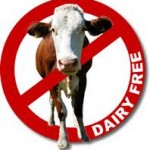Do We Really Need Dairy?
We have been told, longer than we have been alive, that cow’s milk is good for us. We have been taught over and over again that milk is  necessary to help build strong teeth and bones as it is one of the richest sources of calcium. However, do we really know the real truth about dairy? Is milk and milk products really as good as they are claimed to be?
necessary to help build strong teeth and bones as it is one of the richest sources of calcium. However, do we really know the real truth about dairy? Is milk and milk products really as good as they are claimed to be?
First of all, we need to understand that most of the commercial milk that we buy from the supermarkets is from the cows that are not treated very well. They are contained in extremely excruciating environments and are subjected to various terrible substances like antibiotics and rBGH. rBGH is a genetically engineered hormone that when injected, forces the cow to produce more milk. This, in turn, increases the chance of udder infections in cows by as much as 79%. This infection leads to an increase in the amount of pus that is leaked out in the milk. And then what is done next? You guessed it right; they are given antibiotics to keep the infection under control. Now, when you drink milk from this cow, you are also taking in the hormone, the antibiotics as well as the pus. Still want to drink it?
Now, you may be thinking, ‘What about the raw organic milk?’ A good question indeed. Well, raw organic milk is definitely better than its inorganic counterpart, but is still better avoided. Why? Well, here are some good reasons to keep it out of your diet:
Dairy and the Acid Factor
Contrary to what dairy industry has led us to believe, excess animal protein in dairy is so highly acidic that it actually forces our body to release the calcium stored in our bones to buffer the acidity, rather than supply our body with extra calcium. A 12 year study done in Harvard involving over 77,000 women found that women who drank more milk were the ones who experienced the most fractures. Eyebrows raised yet?
Dairy and Lactose Intolerance
Once weaned, over 75% people lose their ability to produce the enzyme that is needed to digest lactose – the milk sugar; this is what causes lactose intolerance in many individuals. The sugars that are left undigested end up in our colon. Here they ferment and lead to many complications like nausea, bloating, diarrhea, cramping and flatulence. Dairy has also been linked to asthma, allergies, mucous, weight gain and acne.
Dairy and Heart Disease
Dairy is also high in cholesterol and saturated fats; and both of these have been linked to higher risk of developing heart related complications.
Is There a Good Substitute to Dairy?
Coconut milk, for example, can provide you with much needed calcium, selenium, zinc, iron and magnesium. Almond milk is another great source of calcium, potassium, magnesium and phosphorus. Hazelnut milk and oat milk are some other great alternatives as well.
Remember, over half the world is managing quite well without cow’s milk and you would too.
Have you tried any of the alternatives? What’s your favourite?
Drink up and enjoy!
Andrew
‘The non-dairy eating personal trainer’
Andy is the type of guy who never gives up and knows what it takes to get the job done. Recently, in the space of five years he was diagnosed with Cancer three times and beat it without fail each time. If you want to learn the tools and techniques to overcome obstacles in your life, click here

